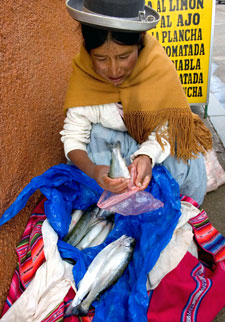News
A New Declaration Enshrines the Rights of Indigenous Peoples
- 14 September 2007
News
NEW YORK, New York — Twenty-five years after consultations on the subject began, the United Nations General Assembly adopted a landmark declaration on the rights of indigenous people by an overwhelming majority.
The United Nations Declaration on the Rights of Indigenous Peoples was approved after 143 Member States voted in favour, 11 abstained and four – Australia, Canada, New Zealand and the United States – voted against the text, according to a UN press release.
Although it is a non-binding text, the Declaration has been hailed as a triumph for indigenous peoples, who were instrumental in drafting it.

The Declaration sets out the individual and collective rights of indigenous peoples, as well as their rights to culture, identity, language, employment, health, education and other issues. It emphasizes the rights of indigenous peoples to maintain and strengthen their own institutions, cultures and traditions and to pursue their development in keeping with their own needs and aspirations.
It also prohibits discrimination against indigenous peoples and promotes their full and effective participation in all matters that concern them, and their right to remain distinct and to pursue their own visions of economic and social development.
UNFPA has an express commitment to indigenous peoples, who tend to fare poorly in terms of income, education, literacy and maternal and infant mortality. In every region, indigenous peoples are among the poorest, most socially excluded and discriminated-against groups.
The stress of poverty, as well as a clash of cultures, often leaves indigenous women subject to gender-based violence, despite indigenous traditions of balance and shared lives between men and women.
The Fund supports a number of intercultural initiatives that focus on improving access of indigenous peoples to reproductive health, taking into account the importance of cultural values in dealing with this sensitive sphere of life. Many of these initiatives are in Latin America, home to large indigenous populations and the highest income inequalities in the developing world.
UNFPA also embraces a programming approach that respects the diversity of cultures and understands the need fur a culturally sensitive approach, especially when dealing with intimate spheres of human existence, including reproductive health and rights, gender relations and population issues.